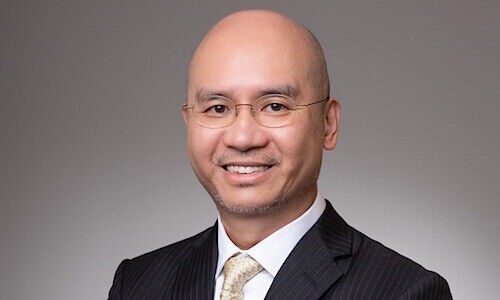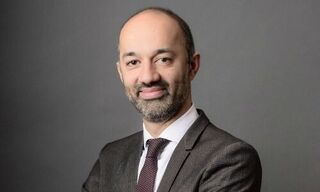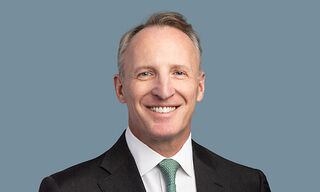Greenwashing investigations in other countries have sent a shiver down the spine of the Swiss financial sector, and the domestic regulator has already come across unfounded promises about some funds’ sustainability.
Greenwashing has become more than just a dirty word since August. Reports of investigations by the U.S. Securities and Exchange Commission and German regulator Bafin into Deutsche Bank’s funds arm DWS have alarmed those involved in sustainable finance in Switzerland.
The Swiss financial center is looking to become a sustainable-investment hub, an aspiration which is particularly image sensitive.
The Swiss government has even put Geneva forward as a candidate for the headquarters of the planned International Sustainability Standards Board.
Research by finews.asia shows there are fears that a negative press could set back the industry’s efforts on this.
Hitting Where It Hurts
As a result the industry and the authorities have begun moves to counter the phenomenon.
Swiss Sustainable Finance, to which most companies in the sector belong, is running a pilot scheme that aims to increase the transparency of sustainable investment products.
Financial regulator Finma told finews.asia that on-site sustainability inspections were ongoing and followed a handful of checks focusing on asset management earlier this year.
«There are more planned,» a spokesman said.
DWS shows that asset managers face tangible risks from allegations of greenwashing. After the «Wall Street Journal» first reported on the SEC investigation, DWS shares dropped over 10 percent.
Dissent from Within
The investigations were reported by the «Wall Street Journal» to have been sparked by DWS’ former head of sustainability Desirée Fixler’s allegations that DWS sustainable investment criteria were too lax and made investments look more sustainable than they were. DWS has denied this.
Fixler isn't the only whistleblower. Tariq Fancy's broadside against the industry, which now manages no less than $35 trillion worth of assets, is even more scathing. When he was the head of sustainability at the world's largest asset manager, BlackRock, Fancy came to the conclusion in his blog posts that sustainable investments were a «dangerous placebo».
Swiss Sustainability Hub in Peril?
The Swiss market for sustainable investments 31 percent to 1.52 trillion francs ($1.66 trillion) last year. For the first time, the volume of funds managed using environmental, social and governance (ESG) criteria accounted for more than half of the entire Swiss market.
The latest craze is now the demand for impact. SSF said the industry is entering the «Sustainable Finance 3.0» era. So they have a lot to lose. There have been no whistleblowers so far in Switzerland but there is no lack of criticism from outside the industry.
Environmentalist group Greenpeace recently carried out a mystery shopper exercise at 19 Swiss banks. They came to the conclusion that the quality of advice was poor and the recommended products were only marginally more climate-friendly than conventional ones.
Bad Grades
U.K. NGO Influence Map recently gave Swiss financial services providers bad marks. The group assessed how close the management of the funds actually came to the targets set in the Paris Agreement - such as net zero CO2 emissions by 2050.
However, the companies concerned criticized the rating methodology, which highlights the problem with the greenwashing allegations. They end up becoming a series of claims and counter-claims because there are still no uniform metrics.
«My view on greenwashing is that it occurs when a provider promises something that they cannot deliver via their investment approach,» SSF CEO Sabine Döbeli said.
Misunderstandings
In many cases, funds are expected to have an effect, but they invest according to the ESG integration approach, i.e. they are not designed to have an impact at all, Döbeli said. «That is a major misunderstanding»
The risk of such a misunderstanding is high because around 90 percent of the sustainable investments traded in Switzerland do not invest according to impact criteria.
However, the impact trend is also a bone of contention. «An investor does not create an impact if they buy shares in a company that has a positive effect on climate change, for example.»
Difficult Balance
Finma is also aware of the problem. «As part of our supervisory activities in this area, we also see providers promising a sustainable impact from their products, but they cannot prove it,» the regulator said.
The information on and calculations of the CO2 savings claimed are often incomprehensible. The authorities take action when investor protection is involved.
«From Finma's point of view, it is crucial that the extent to which the product delivers what it says it will is demonstrated to customers in a comprehensible manner. Where this is not the case, Finma has intervened.» The regulator did not name names, but said the relevant companies responded relatively quickly to critical questions or suggestions for improvement.
Autumn Proposals
However, financial regulators face a situation where there is no generally applicable regulatory definition of greenwashing. This is now to be remedied.
Proposals by Autumn
The State Secretariat for International Finance (SIF) has been instructed by the government to work with Finma on the need to regulate to prevent greenwashing and come up with proposals by this autumn.
Switzerland is not the only country looking into this. SEC Chairman Gary Gensler was quoted by the «Wall Street Journal» (behind paywall) as saying Wednesday he had asked his staff to make recommendations for new disclosure requirements for funds claiming to be green, low-carbon or sustainable and that he expected to seek public comment on the matter later this year or in early 2022.
For its part, the industry has realized that it cannot stand idly by. In June, SSF made recommendations on transparent ESG reporting. Its aim is uniform reporting on fund management and portfolios. «We shall rely on key metrics that enable comparison and can also be aggregated,» Döbeli said. A pilot for fund providers has already started.


























